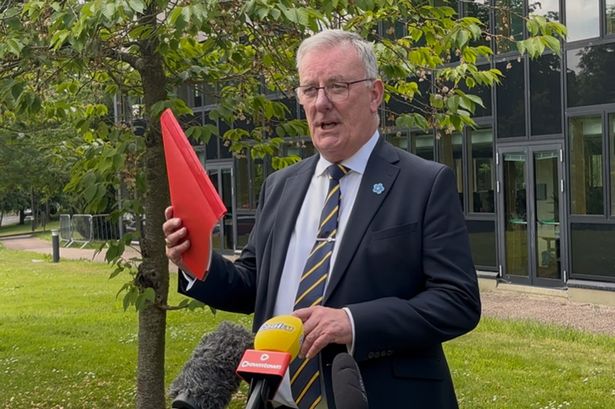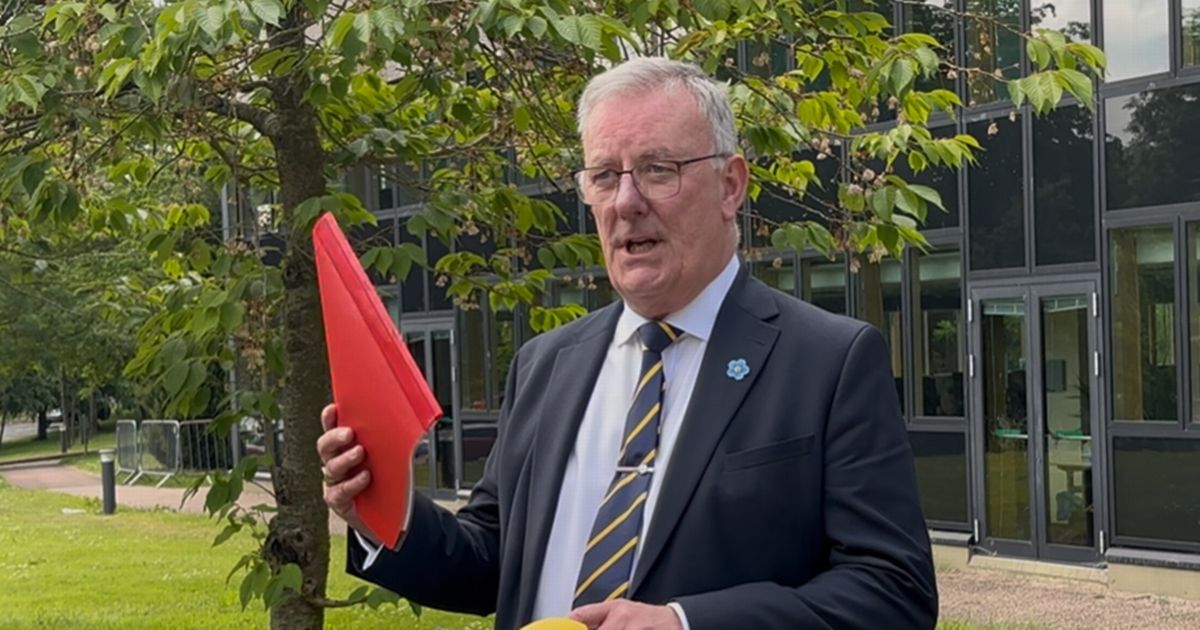The MDT programme brings health professionals such as physios, nurses, social workers and mental health practitioners together to work alongside GPs
13:52, 30 Jul 2025Updated 15:46, 30 Jul 2025
 Stormont Health Minister Mike Nesbitt speaks to media outside the Department of Health(Image: Rebecca Black/PA Wire)
Stormont Health Minister Mike Nesbitt speaks to media outside the Department of Health(Image: Rebecca Black/PA Wire)
A push to expand ‘multi-disciplinary teams’ in the NI health service will ease pressure on GPs and “double” the number of appointments offered, Health Minister Mike Nesbitt has said.
The multi-disciplinary team (MDT) programme brings health professionals such as physios, nurses, social workers and mental health practitioners together to work alongside GPs. Patients registered to one of the MDTs should be able book an appointment directly – without having to go through their GP first.
The model is already in the process of being rolled out in several areas of Northern Ireland and will now be expanded into five more.
READ MORE: John Wilkinson tributes after former Dromore High head teacher died suddenly on holidayREAD MORE: Belfast residents warned as ‘traffic light’ bin collection enforcement system to begin
Mike Nesbitt, in a statement announcing new “planned investment in primary care”, said the number of appointments offered by MDTs should be doubled over the course of the next five years.
A spokesperson for his Department said: “The expansion of the Multi-Disciplinary Team (MDT) Programme will also help stabilise GP services.
“A long-term health reform initiative, the MDT model introduces new physiotherapy, social work and mental health roles into general practice to work alongside the existing practice teams. It will help shift services towards supporting good health and social wellbeing.”
The Minister said: “We can see that the MDT programme is making a significant difference. In the areas it has already been rolled out to, it delivered an additional 335,000 patient consultations in 2024-25.
“We can double that appointments total over the next four years and then push it up to the million mark within eight years. That ambitious projection is included in the implementation plan.
“The MDT programme also involves a range of localised programmes with the Community and Voluntary Sector. During 2024-25 this enabled over 400 local projects, supporting more than 17,000 patients.”
He added: “The implementation plan also sets out compelling evidence that the MDT programme helps stabilise pressurised GP services and reduce referrals to hospitals.
“Progress on implementing the MDT model has been constrained by funding and staff availability. However, this year I have been able to secure £61m of Executive transformation funding to push ahead with expansion.”
The Minister also had a message for GPs, saying: “I know GPs are frustrated at the current serious pressures and the budget shortfall across health and social care this year.
“But I can assure them that I am determined to deliver on a neighbourhood centred system of health and social care. I want to involve and empower GPs at every step of this process.
“As part of that, I would again encourage the BMA’s GP leadership to take up my offer of detailed talks on a new GP contract for next year. The fact that available funding this year falls far short of all our requirements should not stop us working together on longer-term solutions.”
He added: “My focus on successfully expanding the MDT programme is proof of my commitment to expanding primary care overall. We need to deliver more services closer to communities and help people stay well. The contribution of GPs is central to that.”
The MDT programme is currently complete or in development in the Down, Derry, West Belfast, Causeway, Newry, Ards and North Down GP Federation areas.
The £61m Executive transformation funding will enable it to be expanded to a further five areas: North Belfast, South West (Fermanagh/ West Tyrone) and East Antrim, Craigavon, and Armagh and Dungannon.
A spokesperson for the Department of Health said: “As set out in the implementation plan, all GP Federation areas in Northern Ireland will see MDT implementation commence within the next 5 years. Full roll-out is projected to take around eight years.”
The document states that implementation of the programme will proceed in two phases:
Phase 1 will run from 2025/26 to 2028/29 and will see MDT completed in the seven existing GP Federation areas where implementation has already commenced, and expansion to a further five Federation areas in line with the schedule announced in 2022.Phase 2 will run for a further four years from 2029/30 and will see MDT completed in the remaining five GP Federation areas.
For all the latest news, visit the Belfast Live homepage here and sign up to our daily newsletter here.

